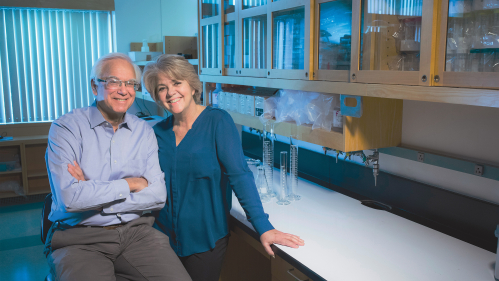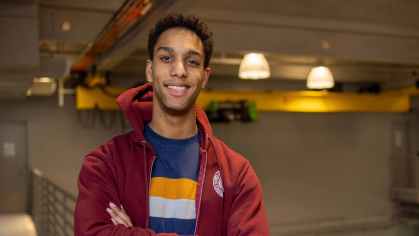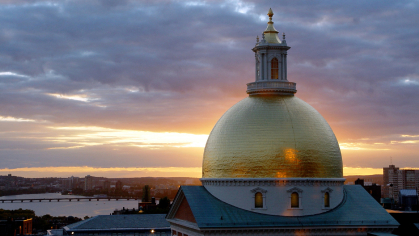Rutgers-Led “Microbial Noah’s Ark” Should Move to Next Phase, Study Finds

A new study finds that a Rutgers-driven proposal to create a “microbial Noah’s ark” to protect the long-term health of humanity is feasible and should move forward into a pilot project phase.
The Microbiota Vault would gather beneficial germs from human populations whose microbiomes are uncompromised by antibiotics, processed diets and other ill effects of modern society that have contributed to massive loss of microbial diversity and an accompanying rise in health problems. The human microbiome includes the trillions of microscopic organisms that live on and in our bodies, contributing to our health in myriad ways.
The project is championed by Rutgers faculty members Maria Gloria Dominguez-Bello, Henry Rutgers Professor of Microbiome and Health at Rutgers-University New Brunswick, and Martin Blaser, the Henry Rutgers Chair of the Human Microbiome; and Professors Rob Knight and Jack Gilbert at the University of California at San Diego. The researchers, who outlined their proposal in 2018 in the journal Science, liken their idea to the Svalbard Global Seed Vault, the world’s largest collection of crop diversity created in case of natural or human-made disasters.
The feasibility study was prepared by two independent Swiss firms, commissioned by the Seerave Foundation, Gebert Rüf Foundation, Rutgers University, Calouste Gulbenkian Foundation, Kiel University, UC San Diego School of Medicine, Canadian Institute for Advanced Research, and Bengt E. Gustafsson Symposium Foundation, affiliated with Karolinska Institutet. The study found that the Microbiota Vault initiative has great significance and potential, and that its leaders should establish a pilot project that would include installing infrastructure to store microbes in a site such as Norway or Switzerland and collaborations for collecting samples with developing countries. When fully operational, the Microbiota Vault would be a global backup store for all microbial samples, the originals of which would remain within local collections in the countries of origin.
“We look forward to taking the next steps toward a pilot project with the goal of testing the legal and logistical framework of the Microbiota Vault. We’ll also start capacity building by creating dedicated courses at Rutgers and universities in Peru and other developing countries,” said Dominguez, Henry Rutgers Professor of Microbiome and Health; professor of microbiology at the School of Environmental and Biological Sciences; professor of anthropology at the School of Arts and Sciences; and director of Rutgers' New Jersey Institute for Food, Nutrition and Health, who noted that the COVID-19 pandemic may slow those plans but will not derail them. “Preserving the diversity of human microbiota will help address a global health crisis in which conditions such as obesity, asthma and allergies are increasing worldwide, while our microbial diversity declines.”
“Populations in modern societies have lost much of their microbiome because of the damage caused by overuse of antibiotics and other medicines, over-reliance on high fat, processed foods, and other factors of industrialization,” said Blaser, director of Rutgers University’s Center for Advanced Biotechnology and Medicine at Rutgers Biomedical and Health Sciences, and Henry Rutgers Chair of the Human Microbiome and professor of medicine and microbiology at Rutgers Robert Wood Johnson Medical School. The Microbiota Vault initiative will help us work with indigenous cultures, in whom the microbiome is more intact, to find microbes that could be stored, replicated, and reintroduced to protect the health of all people. When new pathogens arise, such as SARS-CoV-2, harnessing the good microbes to fight the bad is one potential approach.”
The researchers said it may be possible one day to prevent disease by reintroducing lost microbes. But that could happen only if researchers first collect beneficial microbes from remote Latin American and African populations that have the greatest microbiota diversity before they, too, experience the effects of urbanization. People living in urbanized societies have lost a substantial part of their microbiota diversity; the gut flora of most Americans, for example, is half as diverse as that of hunter-gatherers in isolated Amazonian villages. Importantly, the characterization of samples stored in the Microbiota Vault would be available in a transparent and open access fashion, enabling researchers across the globe and optimizing use of information and use of the specimens in the local collections.
An international effort, including significant funding, would be needed to collect and store the collected microbes in a global repository.
In addition to a centralized secure back-up collection, the Microbiota Vault initiative also involves a network of regional collections in countries with traditional peoples, who so far have been shown to have high diversity microbiotas, due in part to their natural diets rich in vegetable fibers.


